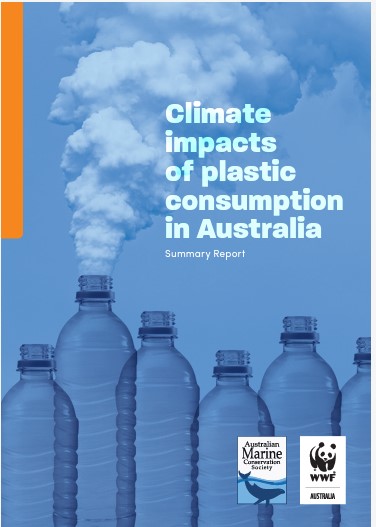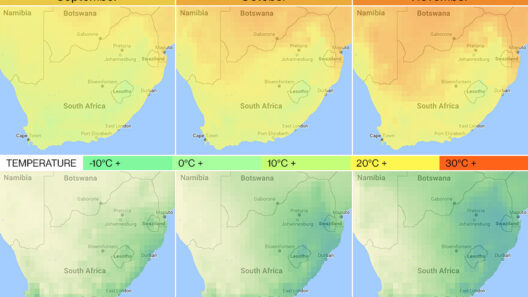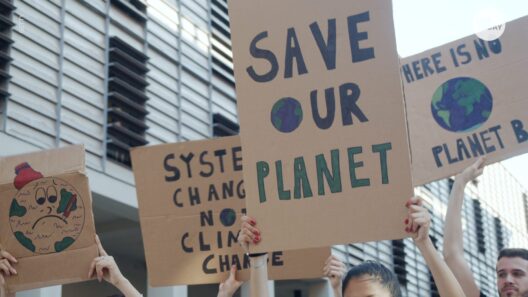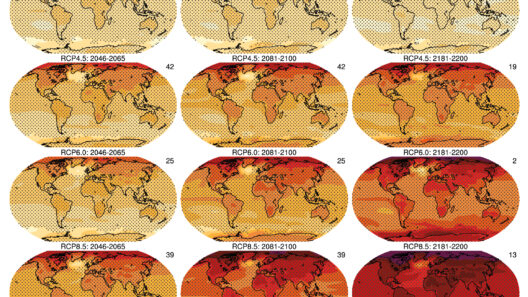Climate change has become a ubiquitous topic of discussion, often steeped in anxiety and uncertainty. While the question, “When is climate change going to kill us?” lingers in public consciousness, it is essential to demystify the layers of both fact and fear surrounding this pressing issue. The fascination with climate change stems not only from the imminent peril it presents but also from humanity’s relationship with the environment. This article endeavors to dissect the implications of climate change, its trajectories, and the nuanced fear that often permeates discourse around it.
At its core, climate change is primarily driven by industrialization, deforestation, and the unsustainable consumption of fossil fuels. These activities have led to increased concentrations of greenhouse gases in the atmosphere, which in turn contribute to global warming. The scientific consensus is stark: if left unchecked, climate change poses an existential threat to ecosystems and humanity alike. However, understanding how and when these threats could manifest requires a thorough exploration of socio-political, environmental, and economic dimensions.
The timeline associated with climate change impacts is neither linear nor uniform. Numerous scientists predict that severe climate repercussions will escalate over the next few decades. Early indicators include stark weather patterns, increased frequency and intensity of natural disasters, rising sea levels, and the degradation of biodiversity. The Intergovernmental Panel on Climate Change (IPCC) has indicated that we are already experiencing these manifestations, albeit unevenly across different geographic regions.
One significant concern revolves around the potential for catastrophic events, such as massive floods, hurricanes, and wildfires. These occurrences have led many to inquire whether climate change could ultimately lead to societal collapse. While it is unlikely that a single event will ‘kill’ humanity, it is plausible that cumulative effects will destabilize global systems, leading to food shortages, mass migrations, and geopolitical conflicts. Such chaos breeds fear—a legitimate response to an uncertain future.
Yet, fear can often cloud rational judgment and obscure the facts. For instance, while flood events are becoming more routine, they are not new phenomena. Historically, human civilizations have exhibited resilience and adaptability, finding inventive solutions in face of adversities. This historical data reveals that, while climate change exacerbates vulnerabilities, it does not render humanity helpless. Thus, rather than adopting a posture of defeat, it remains critical to engage constructively with the challenges posed by climate change.
Climate anxiety also manifests in our psychological landscapes. The omnipresence of doomsday narratives fuels a sense of despair for future generations. Yet, this despair could be leveraged into activism rather than inaction. The environmental justice movements worldwide highlight a burgeoning awareness that pressing for sustainable policies is not merely an ethical endeavor, but an essential one for survival. Grassroots initiatives, corporate responsibility, and international agreements are increasingly becoming instruments for change, proving that agency exists even amid daunting statistics.
Economic repercussions of climate change are also paramount. Industries reliant on natural resources face risks that could undermine their viability. Fisheries are dwindling due to changing ocean conditions, while agriculture contends with variable growing seasons. This economic instability, particularly for vulnerable populations, underscores the importance of sustainable practices. Transitioning to renewable energy is not just an environmental imperative; it is also an economic opportunity. Investments in green technology and infrastructure can stimulate growth and create jobs, framing climate action as not only a moral obligation but also a pathway to prosperity.
Inorder to mitigate the impacts of climate change, collective action and systemic change are imperative. This means re-evaluating consumption patterns, investing in sustainable practices, and lobbying for policies that prioritize the environment. Governments and institutions must prioritize climate science in public policy and education, equipping citizens with the knowledge and tools to confront this challenge. Individuals, too, have a crucial role to play in this dynamic ecosystem of response; lifestyle changes—be it reducing waste, adopting a plant-based diet, or utilizing public transport—can collectively amount to significant impacts.
Furthermore, the role of technology in combating climate change deserves examination. Innovations such as carbon capture, geoengineering, and large-scale renewable energy projects show promise in not only mitigating damage but also reversing harmful trends. However, these solutions must be pursued with caution, ensuring ethical considerations guide technological advancements. Misguided reliance on unproven technologies can exacerbate the existing crises rather than provide relief. The imperative remains: cautious optimism, aligned with empirical evidence, is crucial.
Societal narratives around climate change must shift from apocalyptic foresight to proactive engagement. Addressing climate change should be viewed as a multifaceted challenge, one that requires emotional intelligence alongside intellectual rigor. It is a confluence of environmental science, ethics, politics, and community resilience. Efforts must be concentrated on forging alliances between disparate stakeholders, transcending political divides, and fostering a shared purpose around sustainability.
As we grapple with the question of when climate change will ‘kill’ us, it becomes evident that the timeline extends far beyond singular events or decades. Instead, it encompasses an ongoing struggle to adapt and survive in a changing world. The fear surrounding climate change is valid; it reflects the high stakes involved. Simultaneously, it provides an impetus for collective action. With knowledge comes power. Understanding climate change requires not only awareness but also the fortitude to act. Only then can humanity navigate this turbulent era, not as passive victims but as active stewards of our planet’s future.








